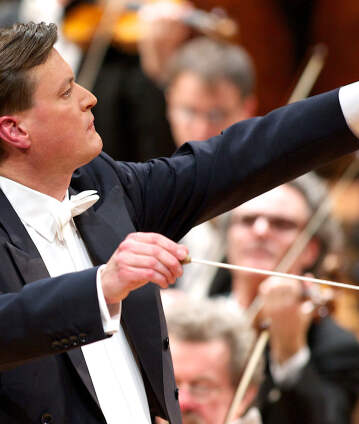Interview
Christian Thielemann in conversation with Christoph Streuli Beethoven et Bruckner avec Christian Thielemann et Rudolf Buchbinder

Un concert de Bruckner dirigé par Christian Thielemann est toujours une fête pour les fans du compositeur. En effet, peu de musiciens savent aussi bien mettre en valeur la sombre incandescence et les longs arcs de tension de cette musique. Thielemann interprète ici la Symphonie n° 7, grâce à laquelle Bruckner obtint enfin la reconnaissance de son talent de compositeur. Le programme comprend aussi le Concerto pour piano n° 1 de Beethoven avec Rudolf Buchbinder en soliste.
Berliner Philharmoniker
Christian Thielemann
Rudolf Buchbinder
© 2016 Berlin Phil Media GmbH
Interviews liées au concert
Artistes
Nos suggestions
- Zubin Mehta et Rudolf Buchbinder dans Beethoven et Strauss
- Christian Thielemann dirige l’« Eroica » de Beethoven
- Une soirée Strauss avec Christian Thielemann et Anja Kampe
- Christian Thielemann et Maurizio Pollini dans le Concerto pour piano n° 21 de Mozart
- Christian Thielemann et Albrecht Mayer dans des œuvres de Strauss et Bruckner
- Christian Thielemann conducts Bruckner’s Eighth Symphony